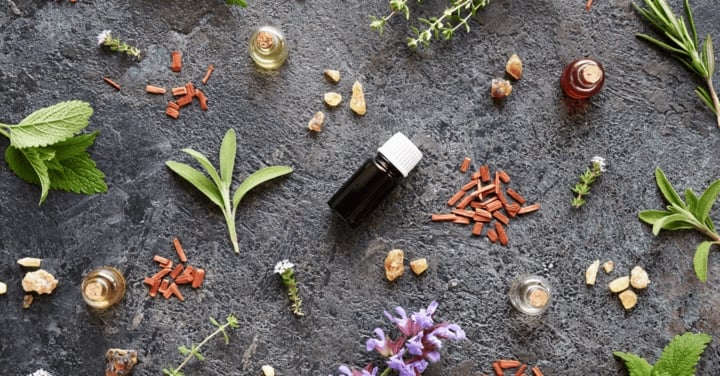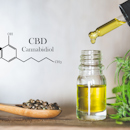
Aromatherapy and Essential Oils: Making Sense of Scents
A new wave of practice is subtly making its mark among medical interventions. Aromatherapy, once considered niche, now emerges as a cornerstone of holistic care. Essential oils, the essence of aromatherapy, offer a wide range of potential for enhancing patient comfort and healing. This aromatic therapeutic approach serves as an intriguing intersection of ancient wisdom and modern science.
What is Aromatherapy?
Aromatherapy entails the use of essential oils extracted from plants to foster physical and emotional health. The art and science of aromatherapy are based on the olfactory system's ability to interact with the brain's limbic system – the seat of emotions and long-term memory. The sense of smell, as a primal human ability, is deeply connected to our overall well-being, making aromatherapy an approachable, powerful tool in the clinical setting. Practitioners dilute these highly concentrated oils and apply or diffuse them to allow patients to inhale or absorb these compounds for therapeutic benefits.
Benefits of Aromatherapy
The potential advantages of aromatherapy span from stress relief and mood enhancement to aiding in the treatment of various conditions. Research shows that certain aromas can elicit physiological responses, such as reducing heart rate and blood pressure, enhancing relaxation, and improving sleep. Aromatherapy has also seen success in complementing traditional Alzheimer's and dementia treatment by influencing patients' neural pathways, potentially helping them with memory and emotional stability.
Different Types of Essential Oils
The world of essential oils is as diverse as the plant kingdom from which they are derived. Each oil has a unique profile of volatile compounds that can have targeted effects. For example, lavender oil is well-known for its calming properties and is a popular choice for relaxation, while peppermint oil is often used to invigorate, revive, and help with digestion.
Using Aromatherapy in Clinical Settings
From hospital wards to birthing centers, the use of aromatherapy is expanding across clinical settings. Many healthcare facilities now offer aromatherapy as an adjunct to standard care, aiming to improve patient comfort and reduce anxiety. The implementation of aromatherapy should be approached strategically, with proper training for healthcare staff and clear protocols for usage. Evaluation and documentation of patient responses can help to solidify the practice within the facility and contribute to the growing body of evidence on its efficacy.
Aromatherapy in Hospitals and Healthcare Facilities
Aromatherapy’s acceptance in traditional medical settings represents a significant change in how healthcare professionals approach holistic care. Used in conjunction with other treatments, it can enhance the patient experience and provide a sense of control and comfort in challenging medical environments. When used alongside pain management strategies, aromatherapy’s relaxation-inducing properties can help reduce the need for pharmaceutical intervention.
Effects of Aromatherapy on Patient Well-being
Patients who receive aromatherapy often report a more positive experience, with decreased stress levels and improved emotional health. Even in critical care, aromatherapy can help to create a soothing atmosphere and calm the stress response in both patients and caregivers. This is particularly significant given the well-documented influence of the hospital environment on patient outcomes.
Evidence-based Practices in Aromatherapy
While anecdotal evidence of aromatherapy's effectiveness abounds, the movement towards evidence-based practices within the field is gaining traction. A growing body of research supports the use of aromatherapy in specific conditions, with studies demonstrating positive results in pain management, labor outcomes, and mental health. This shift allows for a more informed and balanced approach to integrating aromatherapy into clinical care.
Aromatherapy for Stress Reduction
Stress is a ubiquitous human experience and managing it can be just as challenging. Aromatherapy offers an array of scents to soothe the soul and alleviate the physical manifestations of stress. By targeting the limbic system, aromatherapy helps to induce a state of relaxation and calm, which can be quickly and discreetly administered in various clinical scenarios.
How Essential Oils Can Help Reduce Stress
Essential oils can influence the production of stress-related hormones, such as cortisol and adrenaline, by encouraging the body to enter a more restful state. The act of breathing in scented molecules further supports this process, providing a gentle nudge towards tranquility. Oils like chamomile and rose can be particularly effective in this regard.
Best Essential Oils for Stress Relief
Certain oils are renowned for their stress-relieving properties. For example, bergamot oil is celebrated for its mood-enhancing abilities, making it an asset for those faced with anxiety or tension. Additionally, the earthy scent of vetiver oil can ground and relax, while the warm undertones of ylang-ylang promote a serene state of mind.
Methods of Using Essential Oils for Relaxation
In clinical settings, essential oils can be diffused into the air using specialized equipment or added to a compress for patients to inhale. For individual use or at home, a few drops of a chosen oil can be added to a bath, used in a massage, or even inhaled directly from the bottle, providing portable stress-busting solutions. Read below for safety precautions to ensure essential oils are properly diluted.
Essential Oils and Mental Health
The relationship between scent and psyche is a profound one. Aromatherapy, as an extension of this connection, offers support for mental health conditions, such as anxiety and depression. By working with the central nervous system, essential oils can help to modulate mood and foster a more stable mental state. Jasmine and sandalwood oils, for instance, have traditionally been used to uplift the spirit, while clary sage can help to restore a sense of inner peace.
Aromatherapy for Anxiety and Depression
Anxiety and depression can be debilitating disorders, and their management often requires a multifaceted approach. Aromatherapy can be a valuable piece of that puzzle, offering a non-invasive means of support. Oils such as bergamot and frankincense have shown promise in alleviating symptoms, with their calming and grounding properties providing respite from the mind's turmoil.
Essential Oils for Promoting Better Sleep
Sleep disturbances are common among those struggling with mental health issues. Essential oils can play a role in facilitating a restful night's sleep, either on their own or in conjunction with other sleep-support practices. Lavender oil, with its gentle sedative effect, is a popular choice for creating a tranquil sleep environment.
Safety Precautions and Proper Usage of Essential Oils
While the benefits of essential oils can be profound, their concentrated nature requires that they be used with care. Healthcare professionals must be well-versed in safety guidelines and ensure that patients understand the proper methods and necessary precautions for use.
Guidelines for Using Essential Oils Safely
Proper dilution is crucial, especially when applying oils to the skin, to prevent irritation or sensitization. Essential oils should never be ingested unless under the guidance of a qualified practitioner. It is also essential to be mindful of the specific health concerns of the patient and the potential interactions between oils and medications.
Potential Risks and Side Effects of Aromatherapy
Sensitivities to essential oils can vary widely among individuals, and some oils can trigger allergic reactions or respiratory complications. It is important to remain vigilant for adverse effects and discontinue use if any issues arise. Additionally, certain oils, such as citrus oils, may increase the skin's photosensitivity, so caution should be taken in sun exposure after use.
Proper Dilution and Application Methods
When using essential oils for aromatherapy or topical application, dilution with a carrier oil is the standard approach for safety. The general rule of thumb is 1-3% dilution, which equates to 1-3 drops of essential oil per teaspoon of carrier oil. Common carrier oils include jojoba, almond, and coconut. Different methods of application, such as massage and compresses, require different dilution ratios to ensure both safety and effectiveness.
Choosing Quality Essential Oils
With the plethora of essential oil brands available, it can be challenging to discern which offer the highest quality. When selecting oils for clinical use, it is essential to source them from reputable brands that prioritize purity and ethical sourcing practices. The aromatherapy industry is not regulated, leaving room for subpar products that can compromise patient safety and the effectiveness of treatment.
What to Look for in a Reputable Essential Oil Brand
Reputable brands maintain transparency about their distillation and testing processes, with results readily available to confirm the oils' purity and potency. Look for brands that use organic or wildcrafted plants and sustainable practices to ensure a high-quality product. Oils should be free from additives, fillers, and synthetic components.
Understanding Essential Oil Labeling
The label of an essential oil bottle can provide critical information about the product. This includes the common name of the essential oil, the Latin botanical name, the country of origin, the method of extraction, and the part of the plant used. It is also beneficial to see certifications, such as those from the National Association for Holistic Aromatherapy (NAHA) or the Alliance of International Aromatherapists (AIA), which can attest to the oils' authenticity and quality.
Avoiding Synthetic or Adulterated Oils
Synthetic oils, while cheaper, do not offer the same therapeutic benefits as pure essential oils. Adulterated oils, those that are diluted with synthetic compounds but labeled as pure, can cause unexpected reactions in patients. By choosing oils that are rigorously tested and verified, healthcare professionals can be confident in the safety and efficacy of the aromatherapy treatments being offered.
Aromatherapy and essential oils offer a spectrum of therapeutic possibilities, bridging the gap between conventional medicine and holistic care. For healthcare professionals, integrating this practice into treatment plans requires a thorough understanding of the oils, their applications, and the evidence that supports their use. By learning to harness the power of scent, practitioners can enrich the patient experience, provide complementary care, and further the reach of holistic health in clinical practice.
Sources and Further Learning
In building a foundation for aromatherapy and essential oils' therapeutic benefits and safety protocols, this document draws from various scholarly sources. To explore aromatherapy's role in stress reduction and mental health, we refer to Price and Price (2012) in Aromatherapy for Health Professionals. Clinical applications of essential oils, especially in hospitals, are supported by Buckle (2015) in Clinical Aromatherapy in Nursing. Essential oil safety and dilution practices are detailed by Tisserand and Young (2014) in Essential Oil Safety: A Guide for Health Care Professionals. Guidance on selecting high-quality essential oils is found in Schnaubelt (2011) in The Healing Intelligence of Essential Oils.
We also draw insights from the National Association for Holistic Aromatherapy and the Alliance of International Aromatherapists, which serve as experts in the field. If you want to deepen your understanding of aromatherapy's therapeutic benefits and clinical applications, we recommend exploring the resource library offered by these organizations, as well as the integrative health courses that RN.com offers.
Explore the courses:
Complementary and Integrative Health Part 1




